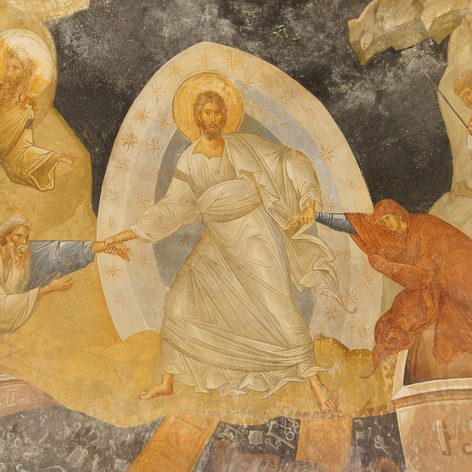|
by Joe Meinholz Psalm 90 (NRSVUE) |
To abide in Christ, to be of one mind with Christ in the words of Paul, is ultimately to take on his way of being in the world, which is one of radical intimacy, reconciliation, and liberation for the entire whole. |
Will we not look to our own interests but those of the climate refugee? How might we empty ourselves so the more than human world can thrive? |
Articles:
Wirzba, N. (2016), Christian Theoria Physike: On Learning to See Creation. Modern Theology, 32: 211-230.

About this Blog
This blog shares the activities of Creation Justice Ministries. We educate and equip Christians to protect, restore, and rightly share God's creation.
Archives
July 2024
June 2024
May 2024
April 2024
March 2024
February 2024
January 2024
December 2023
November 2023
October 2023
September 2023
August 2023
July 2023
June 2023
May 2023
April 2023
March 2023
January 2023
December 2022
November 2022
October 2022
September 2022
June 2022
March 2022
January 2022
December 2021
November 2021
October 2021
September 2021
July 2021
June 2021
May 2021
April 2021
March 2021
February 2021
January 2021
December 2020
November 2020
October 2020
August 2020
July 2020
June 2020
April 2020
March 2020
February 2020
January 2020
December 2019
November 2019
October 2019
September 2019
June 2019
May 2019
March 2019
December 2018
November 2018
October 2018
June 2018
April 2018
February 2018
December 2017
November 2017
October 2017
September 2017
July 2017
June 2017
May 2017
April 2017
March 2017
February 2017
January 2017
December 2016
November 2016
October 2016
September 2016
August 2016
July 2016
February 2016
Categories
All
Climate Justice
Conservation
Energy Ethics
Indigenous Peoples' Rights
Oceans
Public Lands
Racial Justice
Resilience
Season Of Creation
Superfund Sites
Water








 RSS Feed
RSS Feed